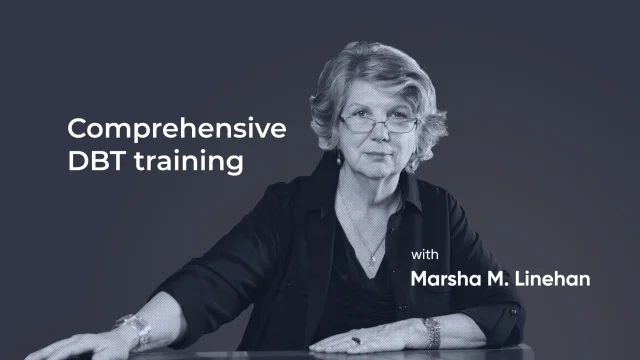15dialectical Behavioral Training
- Training Courses Dialectical Behavior Therapy
- 15dialectical Behavioral Training Classes
- Dialectical Behavioral Therapy Pdf
Previously I have talked about “Training, What Does It Really Do To The Employee And The Company?”, now I will go into some details about Behavioral Training:
Utilize behavior modification strategies at the earliest stage of dysregulation. Determine the importance of structure in both skills training and home environments and how to teach parents or care providers to implement these strategies. Determine how to adapt each.
- Dialectical Behavior Therapy (DBT) is one of the fastest growing approaches — because it works! It harnesses the power of CBT and mindfulness in a strategic way that gets results. And now you can learn how to share and adapt the evidence-based DBT model for children and adolescents in practical and engaging ways — tailored to their unique.
- The Institute for Behavioral Training (IBT) is a one-stop training hub for people who interact with, teach, care for, and treat individuals with autism spectrum disorder (ASD). The Institute for Behavioral Training (IBT) is: Convenient. For busy professionals, teachers, and parents, our online courses can be completed anytime, anywhere.
- Reinforcing Desired And Weakening Undesired Behavior. What is the instructor’s role in this process then? Instructional Design for eLearning based on a behavioristic approach sets the type of reactions to be received by learners after interacting with the online training material.
Let me begin with defining behavior:
/GettyImages-512800999web-570cfc2d5f9b5814086a315c.jpg)
Behavior or behaviouris the range of actions and mannerisms made by organisms, systems, or artificial entities in conjunction with their environment, which includes the other systems or organisms around as well as the physical environment. It is the response of the system or organism to various stimuli or inputs, whether internal or external, conscious or subconscious, overt or covert, and voluntary or involuntary.
Soft skills is a sociological term relating to a person’s “EQ” (Emotional Intelligence Quotient), the cluster of personality traits, social graces, communication, language, personal habits, friendliness, and optimism that characterize relationships with other people. Soft skills complement hard skills which are the occupational requirements of a job and many other activities. Soft skills are personal attributes that enhance an individual’s interactions, job performance and career prospects. Unlike hard skills, which are about a person’s skill set and ability to perform a certain type of task or activity, soft skills relate to a person’s ability to interact effectively with coworkers and customers and are broadly applicable both in and outside the workplace. It has been suggested that in a number of professions, soft skills may be more important over the long-term than occupational skills. The legal profession is one example where the ability to deal with people effectively and politely, more than their mere occupational skills, can determine the professional success of a lawyer. Soft Skills are behavioral competencies. Also known as Interpersonal Skills, or people skills.
According to Wiki.Answers.com; “Soft skills are skills which are difficult to assign an objective numeric measurement to, such as empathy, or “being a people person”. Soft skills are a sociological term which refers to the cluster of personality traits, social graces, ability with language, personal habits, friendliness, and optimism that mark people to varying degrees. Soft skills complement hard skills, which are the technical requirements of a job. ”
Now that we have defined them, let see the difference between them:
In all the frenzy of training corporate specific topics, people might lose the understanding between soft skills and be behavioral skills
- Soft Skills:
A skill is a behavior or ability a person develops through training or experience, and while all personal skills are behaviors, not all behaviors are skills. For example, telling a joke is a skill; laughing at a joke is a behavior. Some suggest that soft skill stands for the soft communication skills, are skills that does involve enhancement of your capacity as an individual on certain aspects of your work.
- Behavioral Skills:
Behavioral skills deal with how you interact within your own organisation/corporation and with other members of the human resource to include external individuals that involves your organisational/corporation work. Others suggest that behavioral skills are a set of training to develop certain behavioral skill in people, such as how to attend to calls/complaints, front office/reception etc. The process is mechanical and is not designed to influence profound changes in people. It is delivered through demonstration/modeling, instructions, role-play/rehearsal, and feedback.

All in all, I think it is safe to assume that they are both two sides of the same coin, and most companies use only one to describe the two.
Training Courses Dialectical Behavior Therapy
Behavioral/Soft skills training examples:


15dialectical Behavioral Training Classes
Examples include, but not limited to:
Dialectical Behavioral Therapy Pdf
- Communication skills.
- Conflict resolution.
- Negotiation skills.
- Creative problem solving.
- Strategic thinking.
- Team building.
- Influencing skills.
- Time-management skills.
- Interpersonal skills.
- Leadership skills.
